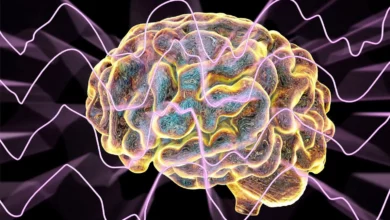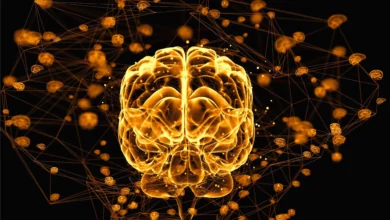
Lead Image: The study found that feeding history affects synapses on dopamine neurons as well as dopamine release.
The findings imply that young individuals may suffer long-term consequences, particularly in terms of cognitive flexibility.
Few studies have examined the impact that feast or famine has on the developing brain in isolation from other variables that contribute to adversity, despite the fact that food insecurity is an issue for a rising proportion of the American population, made much worse by the coronavirus pandemic.
University of California, Berkeley researchers have simulated the impacts of food insecurity on young mice and discovered long-lasting changes later in life.
“We show that irregular access to food in the late juvenile and early adolescent period affects learning, decision-making, and dopamine neurons in adulthood,” said Linda Wilbrecht, UC Berkeley professor of psychology and member of the Helen Wills Neuroscience Institute.
One key behavioral difference involved cognitive flexibility: the ability to generate new solutions when the world changes.
“Mice searching for rewards might be inflexible, sticking to only one strategy even when it no longer yields a reward, or they might be flexible and quickly try out new strategies. We found that the stability of the food supply mice had when they were young governed how flexible they were under different conditions when they were grown up,” she said.
Epidemiological studies have connected childhood and teenage food insecurity to later-life weight gain, as well as learning difficulties and worse math, reading, and vocabulary scores. However, other poverty-related factors, such as maternal depression and environmental stressors, confound these studies. The new research was designed to investigate the developmental and behavioral effects of food insecurity in a controlled environment that would not be achievable with human subjects.
The findings have ramifications for humans. Policymakers recognize the need for good nutrition from infancy through high school, with federally supported free or reduced-price breakfast and lunch programs offered in schools around the country. The federal Supplemental Nutrition Assistance Program (SNAP) also offers subsidies to help poor families supplement their food budgets. These meal programs have shown effects on low-income families, particularly improved academic performance and graduation rates.
But there may be times when kids cannot access food programs, such as during summer vacation. Programs may also inadvertently create a feast and famine cycle when benefits are distributed with weeks between payments, potentially leaving impoverished families unable to afford food at the end of each payment cycle. According to a recent report from the U.S. Department of Agriculture, 6.2% of households with children — 2.3 million households total — were food insecure in 2021.
“I think that we have to understand that even transient food insecurity matters, the brain doesn’t just catch up later. Food insecurity can have long-term impacts on how someone’s brain functions,” Wilbrecht said. “The ability to learn and make decisions is something that’s developing during childhood and adolescence, and we are seeing how these critical skills are impacted by access to food. Access to food is something that we can address in this county. Feeding and benefits programs exist, and we can make them better by making access to benefits or food more reliable and consistent. Supporting brain development is a good reason to support food programs.”
The research, conducted with UC Berkeley faculty members Helen Bateup, Stephan Lammel, and their lab colleagues, was recently published in the journal Current Biology.
Flexibility under changing rules
Wilbrecht and her colleagues, including Robert Wood Johnson Foundation Health and Society Scholar Ezequiel Galarce, mimicked human food insecurity in mice by delivering food on an irregular schedule while still allowing enough food to maintain a safe body weight. This food regimen began a week before puberty onset in mice, equivalent to late childhood in humans, and continued for 20 days through the equivalent of late teen ages in mice. Another group of mice was offered food whenever they wanted it.
They then tested cognition in adulthood using foraging tasks where mice searched a changing environment for rewards. For example, a behavior — in this case, learning which odor led to the Honey Nut Cheerios — might be successful for a short time, but not forever. A second odor now predicted where the reward was hidden.
The well-fed and food-insecure mice were tested as adults in both certain and uncertain settings, with noticeable differences in cognitive flexibility. Food-insecure mice were more flexible in uncertain situations than well-fed mice, while well-fed mice were more flexible in more stable situations.
“You would have to test in the field to see how these different flexibility profiles affect survival,” she said. “The findings are nuanced, but hopeful because we identify both gain and loss of function in learning and decision-making that are wrought by the experience of scarcity.”
While the effect of food insecurity on cognition in male mice was robust, female mice showed no effect on cognition.
“This is one of the most robust behavioral effects we’ve ever seen when we’ve been modeling adversity,” Wilbrecht said.
Food insecurity had other decidedly negative effects in female mice, however. Those females who were food insecure when growing up tended to become overweight when given unrestricted food in adulthood, something mirrored in humans who’ve grown up with food insecurity. Male mice showed no such effect.
Doctoral student Wan Chen Lin and researchers in the Bateup and Lammel labs also looked at the brain’s reward network, which is governed by the neurotransmitter dopamine, and found changes there, as well, in male mice.
“We found that the neurons in the dopamine system, which is critical for learning, decision- making and reward-related behaviors, like addiction, were significantly altered in both their inputs and their outputs,” Wilbrecht said. “It suggests there are more broadscale changes in the learning and decision-making systems in the brain.”
For example, the researchers saw changes in the synapses of dopamine neurons that project to the nucleus accumbens and also found changes in dopamine release in the dorsal striatum. These dopamine neurons have been shown to play a role in learning and decision-making in numerous other studies.
The researchers are continuing their studies of food-insecure mice to determine if they are more susceptible as adults to addictive behaviors, which are associated with the dopamine network.
Reference: “Transient food insecurity during the juvenile-adolescent period affects adult weight, cognitive flexibility, and dopamine neurobiology” by Wan Chen Lin, Christine Liu, Polina Kosillo, Lung-Hao Tai, Ezequiel Galarce, Helen S. Bateup, Stephan Lammel and Linda Wilbrecht, 20 July 2022, Current Biology.
DOI: 10.1016/j.cub.2022.06.089
The study was funded by the National Institutes of Health and the Robert Wood Johnson Foundation. Bateup is a Chan Zuckerberg Biohub investigator and a Weill Neurohub investigator.





